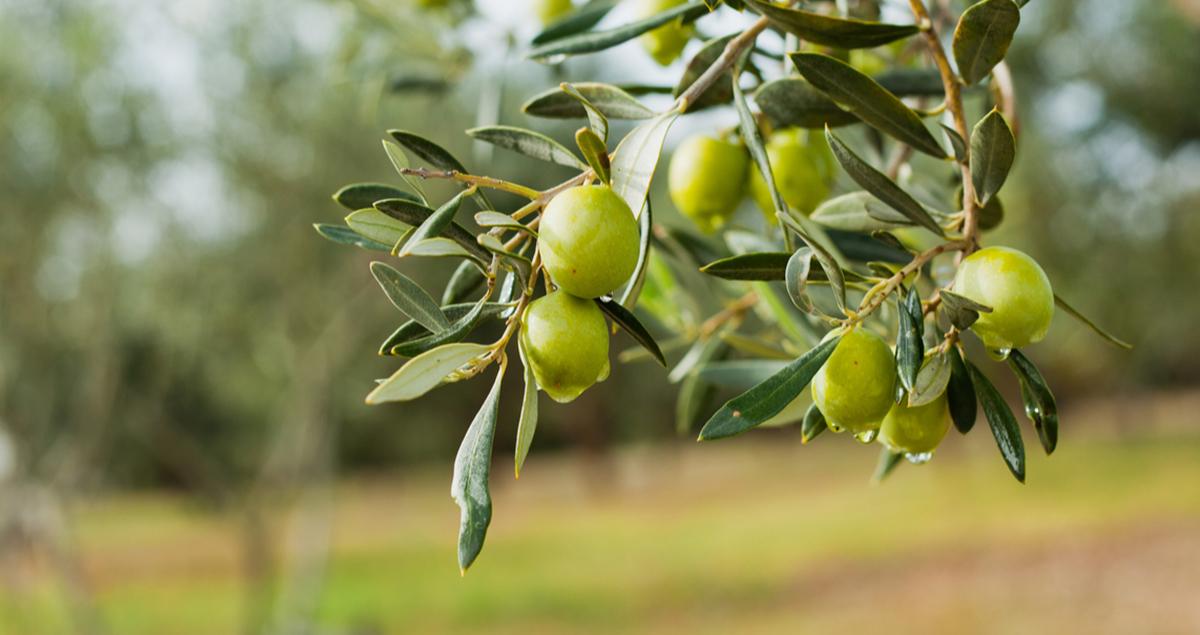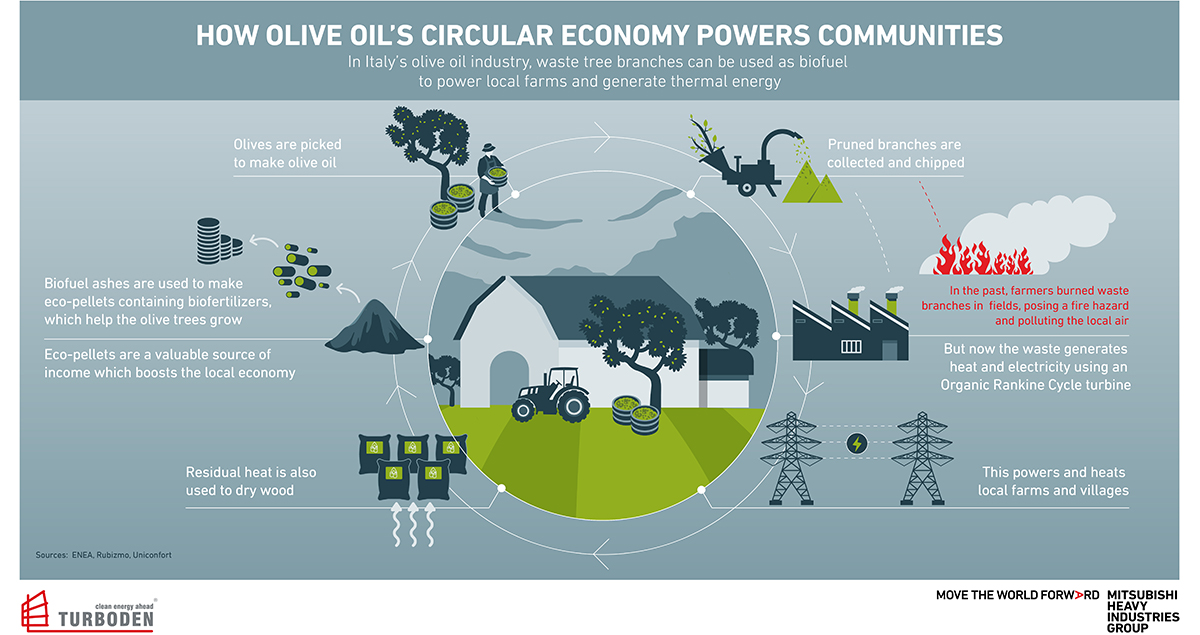Rich pickings: how sustainable farming boosts olive incomes

Going organic is not the only path to sustainable farming. In the olive-oil producing Puglia region of southern Italy, the circular economy is hard at work converting agricultural waste into a source of clean energy.
The Fiusis project collects unwanted olive tree branches, pruned during the area’s olive harvest, from local farmers. Traditionally, this waste was burned in the fields, polluting the atmosphere and creating a potential fire hazard, or farmers would pay for it to be taken away.
Now the branches are turned into wood chippings on the farm, then transported to a power plant, where they are stored to be used as biofuel.
The chippings are fed into the plant’s boiler, but unlike other biomass power plants this system does not use the hot water from the boiler to drive a steam turbine. Instead, the water passes through a heat exchanger, which contains a separate fluid with a lower boiling point than water, operating in a closed loop. Once vaporized, the vapor drives an Organic Rankine Cycle (ORC) turbine, rotating at a relatively slow RPM. This system can generate power from lower temperatures, making it more energy efficient.
These turbines produce both heat and electricity to power homes, farms, and businesses across the entire local municipality of Calimera.
Alongside electricity generation, the plant exploits residual heat from burning biofuel to dry other wood residues and produce wood pellets.
Ashes from the burned chippings are used to make eco-pellets containing biofertilizers, which complete the cycle by helping fertilize the olive fields ready for the new crop, while providing a much-needed additional income for the local economy.

Discover more Turboden Biomass Solutions




